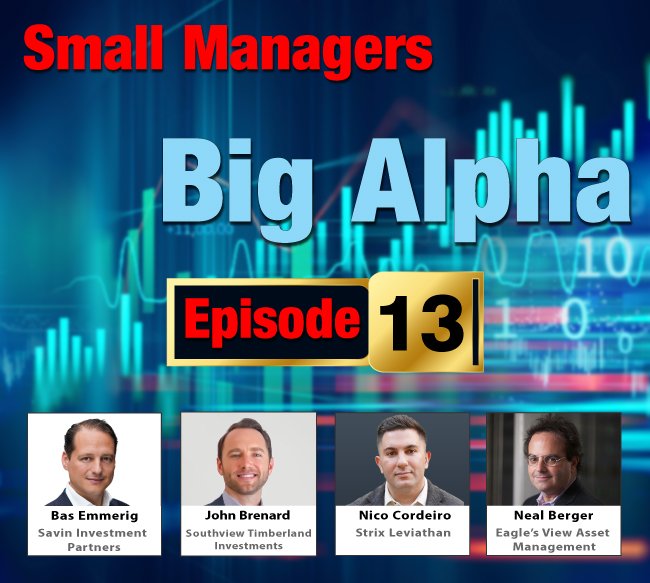
B. G., Opalesque Geneva for New Managers:
Many factors are fuelling the pipeline of credit opportunities: higher interest rates, a weakening macro environment, a reduction of bank lending, and the upcoming debt maturity wall which will require financing at much higher rates.
The term “debt maturity wall” dates back to 2010, and refers to the growing wall of staggered corporate debt maturities that collectively build over time.
Financing costs have indeed increased sharply since the start of the Fed’s tightening cycle in 2022, and refinancing needs have been muted so far because companies issued so much debt in 2020 and 2021. $790bn of corporate debt will mature in 2024 and $1,070bn in 2025, and the majority of outstanding corporate debt was financed at rates well below current market rates.
Savin Investment Partners, an investment house founded in 2020 and located in Amsterdam, the Netherlands, is launching a credit opportunities fund in early 2024 that will capitalise on what they expect will be increasing distressed debt opportunities.
Bas Emmerig, Savin’s founding partner and PM, will present this fund during our next webinar on January 16, Small Managers BIG ALPHA Episode 13 (details below).
Relative value strategy
The new fund runs a relative value strategy that focuses on the relationship between equity, option volatility and credit spread, by buying bonds and hedging default risk with longer-dated stock options covering maturity.
The focus is on mid-market companies, usually in the US. These companies tend to have greater pricing inefficiencies, lower liquidity and larger potential returns due to a lack of analyst coverage, and are often avoided by larger distressed hedge funds due to sizing constraints.
“The US market has a very mature and predictable restructuring and bankruptcy framework, which works very well for us as traders,” says Erdem Yavuz, partner and head of business development, in an interview with Opalesque. “Obviously, the number of opportunities is higher in the US because the market is there. Furthermore, the companies that we look at are more likely to have the derivatives liquidity that we require to hedge against bonds.”
The new Credit Opportunities Fund is a chip off the firm’s flagship, the Savin Multi-Strategy Arbitrage Fund, which among other things does credit arbitrage. The flagship cannot over-allocate to any one strategy and must have matching (monthly) liquidity profiles – which is not always the case with credit investments.
“So we’re not doing anything new,” he adds. “We’re not hiring any new people, because it’s something we’re already doing. The pipeline of opportunities has also been identified, and of course, our screeners. However, we need a vehicle to allocate more to the strategy where everybody knows that the liquidity profile matches the investment profile.”
Opportunities are set to accelerate in the credit world
The investment rationale is to exploit the capital structure mispricing between debt and equity of a company, just as opportunities are set to accelerate.
“Companies have a two to four-year financing cycle,” explains Yavuz. “And there’s a lot of media to back this up. There are a lot of companies that are having to refinance their business now on very different terms. So the 12 years of expansionary monetary policy and free money are over. Basically, a tsunami of refinancing is going to come and hit our target companies. And if you’re paying 3% or 5% and that goes to 10%, that’s a very big hit on your business. That’s why we expect that a lot of companies will be fuelling our profit pipeline or opportunity pipeline. And we already see that now. But the window refinancing next year is going to be a very important one.”
Distressed debt opportunities are found through a combination of fundamental research and quantitative analysis, as well as proprietary screening of 1,500 companies and valuation models.
The selected companies are worth saving because their restructuring is the ideal outcome of the arbitrage. In these companies, “the CFO did not do their job properly, wasn’t prudent enough, and let the company be saddled on with too much debt,” says Yavuz. “Bad companies never get saved. But a lot of companies are fine companies that have just been saddled with too much debt. And they need restructuring.”
SICAV
The Savin Credit Opportunities Fund is a three-year closed-end Luxembourg-SICAV housed by Privium Fund Management, a $4bn AIFMD. The fund’s targeted annualised return is 15% net. Two portfolio managers are running it: Iain Somers, who started his career as the youngest trader ever on the Dutch Options Exchange, is the lead portfolio manager and is continuously identifying new market inefficiencies and exploiting those within the arbitrage universe that Savin operates in, and Ricardo Westra, who is also the firm’s head of volatility trading.
The Eurekahedge Distressed Debt Hedge Fund Index returned 9.5% in 2023 and 2.8% the previous year. As of the end of November 2023, the HFRI Relative Value (Total) Index returned 5.7% in the last 12 months, and the HFRI ED: Distressed/Restructuring Index 4%.
Related articles:
22.Sep.2022 Savin Multi-Strategy Arbitrage Fund voted the AIF Factor 2022 winner
22.Feb.2022 Opalesque Exclusive: Dutch volatility-loving hedge fund returns 25% in first year
Upcoming webinar:
Small Managers – BIG ALPHA Episode 13
Episode 13 of this ground-breaking webinar series presents you with another carefully screened panel of smaller and/or emerging alternative investment managers worth taking a look at.
In one hour, you’ll meet them all, get to know their top quartile strategies, and – since this an interactive session – you can ask your questions.
When: Tuesday, January 16th, 2024, at 11 am ET (4 pm GMT, 5 pm CET, 6 pm Riyadh, 7 pm Dubai)
Who:
– Bas Emmerig, founding partner and PM, Savin Investment Partners
– John Brenard, managing director and founder, Southview Timberland Investments
– Nico Cordeiro, CIO, Strix Leviathan
– Neal Berger, founder, CIO, Eagle’s View Asset Management
Free registration here: www.opalesque.com/webinar/


